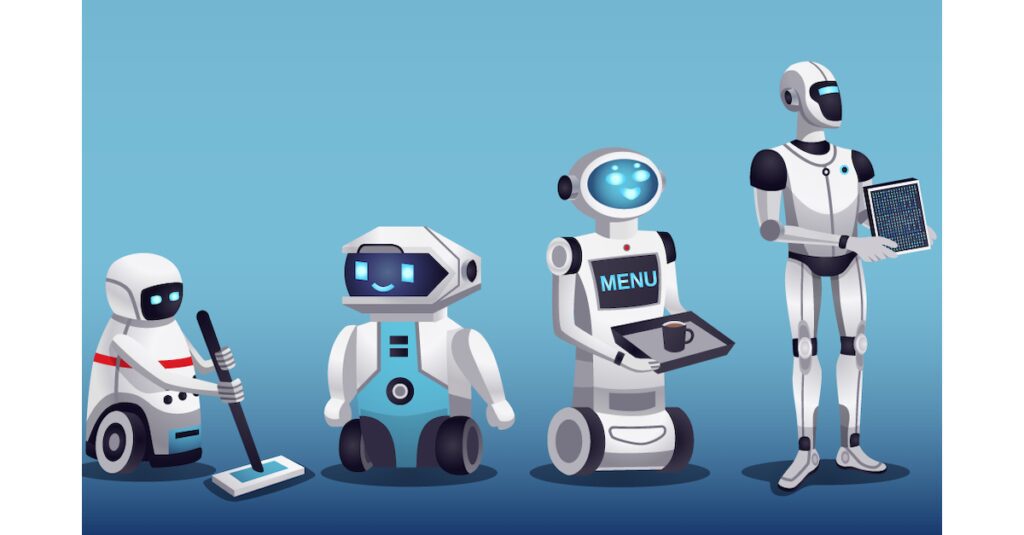Advancements in robotics have revolutionized various industries, from manufacturing to healthcare to space exploration. Industrial robots have improved production output and quality control, with collaborative robots or cobots working alongside humans. In healthcare, surgical robots have enhanced precision and patient outcomes, while robots assist with routine tasks. Robotics has also played a vital role in space exploration, with robots gathering data from distant planets. In everyday life, robots simplify tasks and enhance convenience. However, ethical concerns include job displacement and the use of robots with autonomous decision-making capabilities. Striking a balance between embracing the benefits and addressing ethical challenges is crucial for responsible development.
Advancements in Robotics: Revolutionizing Industries and Beyond
Introduction
Robotics has come a long way since its humble beginnings. With rapid advancements in technology and engineering, robots have become an integral part of various industries, revolutionizing the way work is done and opening up new possibilities. From manufacturing to healthcare to space exploration, robots have proven their worth as powerful tools in enhancing productivity, efficiency, and safety.
The Rise of Industrial Robots
Industrial robots have drastically transformed manufacturing processes. These intelligent machines are designed to perform repetitive tasks with precision and speed, eliminating human errors and increasing production output. One of the key advancements in this field is the development of collaborative robots or cobots. These robots can work alongside humans, enhancing efficiency while reducing the need for extensive safety measures. Industries like automotive, electronics, and pharmaceuticals have witnessed a significant boost in productivity and quality control thanks to the integration of industrial robots.
Robots in Healthcare
Robots are also revolutionizing the healthcare industry. Advancements in robotics have led to the development of surgical robots, offering precision and minimally invasive procedures. Surgeons can now perform complex surgeries with enhanced dexterity and accuracy, resulting in reduced recovery times and improved patient outcomes. Additionally, robots are being employed for routine tasks in hospitals, such as disinfection, transporting medical supplies, and monitoring patients. This allows healthcare professionals to focus on critical care and decision-making.
Exploration and Robotics
Robotics has played a crucial role in advancing exploration beyond Earth. Robotic missions have been instrumental in gathering data about distant planets, moons, and asteroids. Space rovers like the Mars Rover have provided valuable insights into the geology and potential for life on Mars. These robots are equipped with advanced sensors and cameras to navigate and conduct experiments in inhospitable environments. The use of robots in space exploration has proven to be cost-effective and less risky, enabling scientists to explore celestial bodies that would be otherwise inaccessible.
Robots in Everyday Life
The influence of robotics extends beyond industries and specialized fields. In our everyday lives, we encounter robots or robotic systems more frequently than we may realize. From vacuum cleaning robots that navigate our homes autonomously to self-driving cars that promise to revolutionize transportation, robotics is becoming increasingly incorporated into our daily routines. These robots aim to simplify tasks, enhance convenience, and reduce human effort.
The Challenges and Ethical Considerations
While the advancements in robotics offer numerous benefits, they also raise ethical concerns and challenges. One of the primary concerns is job displacement. As robots take over repetitive and manual labor, there is a growing fear of human job loss. However, history has shown that as technology progresses, new job opportunities also emerge, requiring different skillsets. Additionally, ethical considerations surround the use of robots with autonomous decision-making capabilities. Questions of responsibility, accountability, and potential harm arise as robots become more intelligent and autonomous.
Conclusion
Advancements in robotics have indisputably revolutionized industries and transformed various aspects of our lives. From enhancing productivity and precision in manufacturing to revolutionizing healthcare and exploration, robots have opened up new frontiers. As we navigate the future, it is crucial to strike a balance between embracing the benefits of robotics and addressing the ethical challenges they pose. With careful consideration, collaboration, and responsible development, robotics holds the potential to continue shaping our world for the better.
